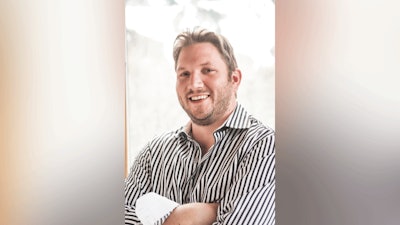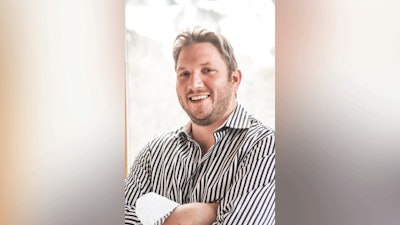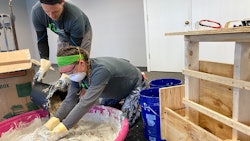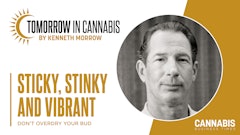

In CBT’s Cannabis Conference-themed podcast series “Beyond the Show” (available wherever you get your podcasts), Digital Editor Eric Sandy sits down with leaders and innovators throughout the cannabis supply chain, discussing topics ranging from outdoor cultivation hurdles to the conundrums of the California market, to social equity initiatives, medical cannabis research, and many more timely and relevant topics affecting plant-touching businesses today.
The following is an excerpt from Sandy’s recent conversation with Greatest Hits Co-Founder Rhett Jordan. Greatest Hits is a vertically integrated cannabis business licensed in Massachusetts, drawing its brand story from the music that has accompanied cannabis culture from past to present. Jordan, who co-founded the multi-location Colorado cannabis retailer Native Roots, possesses a vantage point in expanding from a medical to an adult-use market. Here, he shares insights into branding, product trends, team building, and more.
Editor’s note: This interview has been edited for length, style, and clarity.
Eric Sandy: It seems a lot of roads are leading toward the East Coast. Can you set the stage for us and talk about your plans out East?
Rhett Jordan: After a solid run in Colorado, which I’m still in love with and will always be my home state, I found myself eager to try to bring and legalize cannabis on the East Coast. So I joined forces with a gentleman named Joe Villatico in Massachusetts, and we began the licensure process about two years ago, applying for host community agreements, working with the state, understanding the regulations, getting used to what is the first—in my opinion—scaled legal market on the East Coast. It has been an awesome experience watching the regulatory process [take] shape. It’s been kind of a fast-forwarded version of what we experienced in Colorado for a bunch of different reasons.
ES: What can you tell us about the new concept that’s coming together in Massachusetts?
RJ: I had a big hand to play in the formation in [Native Roots as] the original founding partner, bringing the newer model branding and look and feel of events and excitement—more lifestyle, culture, experiential marketing. That’s what I wanted to bring to the East Coast. I thought long and hard about how I wanted to enter the market. I chose to go a route that’s always been near and dear to me and incorporate a musical angle to it, because I always find that the two (cannabis and music) pair very well together. [It] creates a very nostalgic experience and really allows the consumer to relate and enjoy the product line by creating memories and experiences. I chose to go with a brand called Greatest Hits. It’s going to be all music, all weed, all day. We’re going to really lean into a lot of the cool and different product lines that are going to be emerging in the industry through a lot of these different artists and athletes. And we’re also going to be creating our own lines and brands that will also have different influences involved with them authentically, in a way that really brings the artist and consumer together to share experiences.
ES: What are some of the high-level product categories that might be selling well [in Massachusetts] that might be different than Colorado?
RJ: I think you’re seeing a lot of the genetics from the West Coast starting to filter their way into the Massachusetts market. People are becoming educated [on these genetics], mostly because they taste and smell better, and they have higher percentages. Not because they’re branded, but because it’s good product. I think a big sector that’s going to take shape over the next year to two years—just like it did in Colorado—is the extract market. I think that’s been the slower accelerating market because the prices are high right now, specifically on the quality products. You’re looking at a much larger margin for the consumer to pay for a gram of extracts out there versus in Colorado or California, for example.
ES: What are some of the keys you’ve learned along the way [as] you’re putting together a team in a totally new market?
RJ: To start a team, you really want to start with a strong essence on leadership, and people who are here to help educate each other, and are going to work hard to build an atmosphere and culture within the company that [can] scale as fast as we scale these companies. And that is really the challenging part: You can have a lot of successful people in the room and they don’t get along and it doesn’t really work. So building that company culture and creating that environment where they feel safe and respected is the key to it. In this industry, we’re all moving very fast so there’s going to be turnover and experiences where things don’t work out. The key is: Have you set yourself up for success when needing to deal with those tough situations? Are you able to say, ‘This isn’t working,’ and move on and maintain a relationship? I think we’ve done a great job with that at Native Roots over the last decade, and I think it shows now in my new enterprise as well. We really emphasize employee health and employee comfort as our top priority.
Listen to the full conversation here. Browse the full Beyond the Show episode archive here.

























